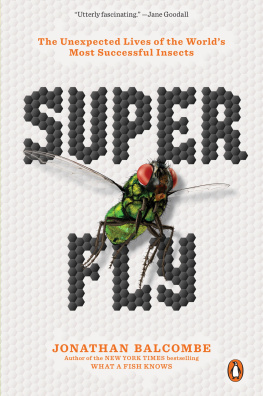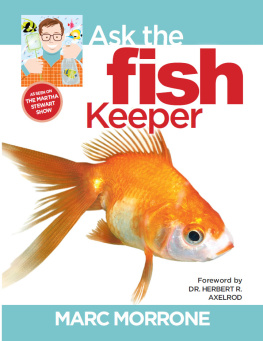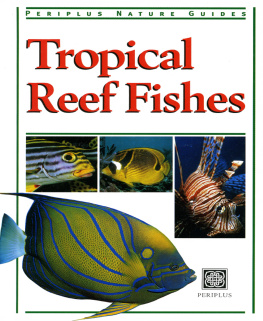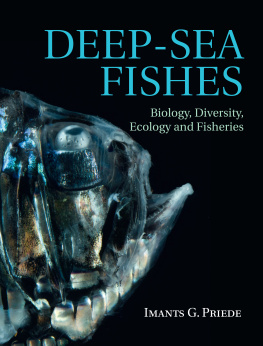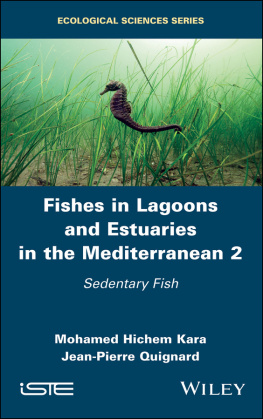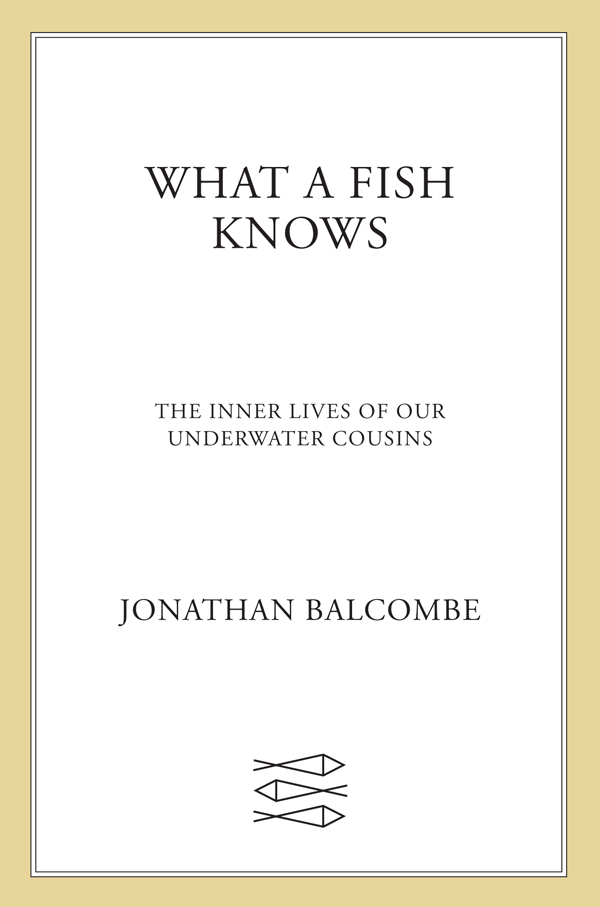Jonathan Balcombe - What a Fish Knows: The Inner Lives of Our Underwater Cousins
Here you can read online Jonathan Balcombe - What a Fish Knows: The Inner Lives of Our Underwater Cousins full text of the book (entire story) in english for free. Download pdf and epub, get meaning, cover and reviews about this ebook. year: 2016, publisher: Scientific American / Farrar, Straus and Giroux, genre: Detective and thriller. Description of the work, (preface) as well as reviews are available. Best literature library LitArk.com created for fans of good reading and offers a wide selection of genres:
Romance novel
Science fiction
Adventure
Detective
Science
History
Home and family
Prose
Art
Politics
Computer
Non-fiction
Religion
Business
Children
Humor
Choose a favorite category and find really read worthwhile books. Enjoy immersion in the world of imagination, feel the emotions of the characters or learn something new for yourself, make an fascinating discovery.

- Book:What a Fish Knows: The Inner Lives of Our Underwater Cousins
- Author:
- Publisher:Scientific American / Farrar, Straus and Giroux
- Genre:
- Year:2016
- Rating:4 / 5
- Favourites:Add to favourites
- Your mark:
What a Fish Knows: The Inner Lives of Our Underwater Cousins: summary, description and annotation
We offer to read an annotation, description, summary or preface (depends on what the author of the book "What a Fish Knows: The Inner Lives of Our Underwater Cousins" wrote himself). If you haven't found the necessary information about the book — write in the comments, we will try to find it.
A New York Times Bestseller
Do fishes think? Do they really have three-second memories? And can they recognize the humans who peer back at them from above the surface of the water? In What a Fish Knows, the myth-busting ethologist Jonathan Balcombe addresses these questions and more, taking us under the sea, through streams and estuaries, and to the other side of the aquarium glass to reveal the surprising capabilities of fishes. Although there are more than thirty thousand species of fishmore than all mammals, birds, reptiles, and amphibians combinedwe rarely consider how individual fishes think, feel, and behave. Balcombe upends our assumptions about fishes, portraying them not as unfeeling, dead-eyed feeding machines but as sentient, aware, social, and even Machiavellianin other words, much like us.
What a Fish Knows draws on the latest science to present a fresh look at these remarkable creatures in all their breathtaking diversity and beauty. Fishes conduct elaborate courtship rituals and develop lifelong bonds with shoalmates. They also plan, hunt cooperatively, use tools, curry favor, deceive one another, and punish wrongdoers. We may imagine that fishes lead simple, fleeting livesa mode of existence that boils down to a place on the food chain, rote spawning, and lots of aimless swimming. But, as Balcombe demonstrates, the truth is far richer and more complex, worthy of the grandest social novel.
Highlighting breakthrough discoveries from fish enthusiasts and scientists around the world and pondering his own encounters with fishes, Balcombe examines the fascinating means by which fishes gain knowledge of the places they inhabit, from shallow tide pools to the deepest reaches of the ocean.
Teeming with insights and exciting discoveries, What a Fish Knows offers a thoughtful appraisal of our relationships with fishes and inspires us to take a more enlightened view of the planets increasingly imperiled marine life. What a Fish Knows will forever change how we see our aquatic cousinsthe pet goldfish included.
Jonathan Balcombe: author's other books
Who wrote What a Fish Knows: The Inner Lives of Our Underwater Cousins? Find out the surname, the name of the author of the book and a list of all author's works by series.

